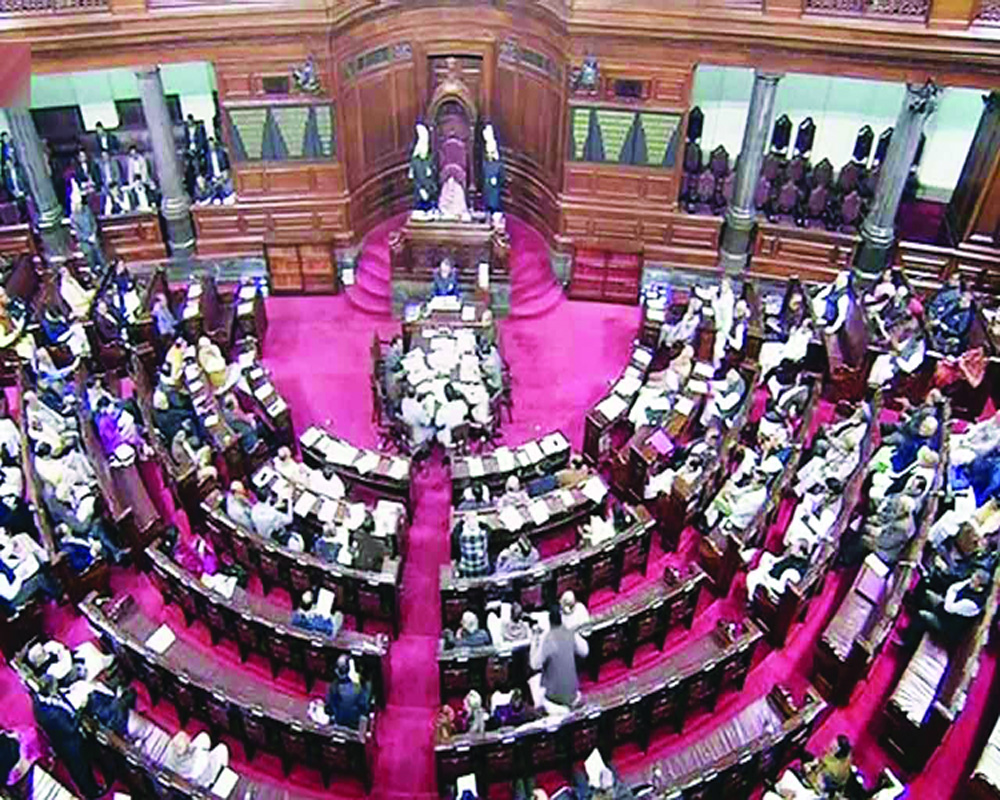Political parties need to realise and decide whether they wish to make serious use of the Upper House or exploit it for their convenience
As expressed in this journal, others have voiced, from time to time, doubts about the utility of the Upper House of legislature whether in the States or at the Centre. The cause of these doubts is the not-so-infrequent misuse of the Rajya Sabha as well as the Vidhan Parishads. As Sanjay Gandhi’s influence grew in the 1970s, many of his friends were lifted into the Rajya Sabha. Fortunately for them, the election rule-framers prescribed the minimum age for such candidates as 30. Hence, like the minimum age of 25 years for the Lok Sabha, anyone who was over 30 years was eligible for the Upper House. In many ways, this was the first reason of misuse.
The Upper House was never meant for the young woman or man to get into. They, being young and fit, should cultivate the common folk, broaden the party base and, in due course, contest a Lok Sabha seat. The young and raw individuals reflected on the House discipline as well as the quality of debates and their contribution to Parliament. The purpose of the Upper House, whether at the Centre or in States, was the exact opposite: Older, mature individuals, preferably well educated who could devote time to study issues and then speak on them in an informed manner. They may or may not relate to the common folk of a constituency, nor perhaps may the mass voters relate to such members.
The Upper House should be used to accommodate leaders who made competent Ministers and had to get elected within six months of their appointment by the Prime Minister or a Chief Minister.
One recent example is that of Yogi Adityanath. He was in the Lok Sabha when the Uttar Pradesh Assembly elections were held in 2017 and he had not contested from any constituency. Yet he was selected to be the Chief Minister and, therefore, had to enter the Assembly. He could have requested an MLA to give up his seat. But instead of doing that, he chose not to disturb anyone; there was a Vidhan Parishad seat vacant which he used to become an Assembly member. In 2001, when Narendra Modi was in a similar situation in Gujarat, he could not do the same. There being no Vidhan Parishad in his State, Modi had to get elected from an Assembly seat vacated by an MLA.
Having been a member of the Rajya Sabha, I found that the level of debates and discussions was, on the whole, more sober and mature than in the Lok Sabha. Generally, the speakers in the Upper House ensured that they had studied and reflected on the subject they spoke on whereas, in the Lok Sabha, more members spoke off the cuff; most of them had spent time in their constituencies over the weekend. Many of them regularly left Delhi on Friday afternoons, if not on Thursday evenings, to return on Monday mornings. The Rajya Sabha members could afford to spend the weekends in Delhi and read up before speaking the following week.
The Communist parties had a commendable system; most of their Upper House members spent the weekends in Delhi. They not only studied the contemporary subjects but also collected the Bills coming up for debate and passed on their notes to their Lok Sabha colleagues. I offered to organise a small secretariat at my cost for all my party members so that all of us could be better prepared for discussions. Being in power after long and with a lenient leadership, the general mood in the party was one of overconfidence. Little wonder then that the 2004 general election was lost on a manifesto which projected “India shining”. To every Indian shining, there were citizens not shining.
In India, our constituencies are large and the voters are much more varied than, say, in western countries. Moreover, our diversity makes it useful for the Members of Parliament and even Assemblies to know other parts of the country. The Upper House members would have the leisure to do this kind of work during the weeks when the House does not sit. The Lower House members cannot normally have much leisure; their focus has to be on their own voters. If the legislators do not take their knowledge side seriously, they would yield helplessly to the dominance of the Executive or the Ministers.
It is for the political parties to realise and decide whether they wish to make serious use of the Upper House or exploit it for their convenience. But, truly, these chambers can be useful as knowledge-cum-wisdom banks for the parties as well as for the country. They can help raise the quality of politics.
Getting elected by lakhs of people is related to popularity or, at least, acceptability whereas knowledge depends on education and experience. Both are necessary virtues; the Lower House more for the party while the Upper House more for the country in the long run, if used wisely.
(The writer is a well-known columnist and an author. The views expressed are personal.)


























